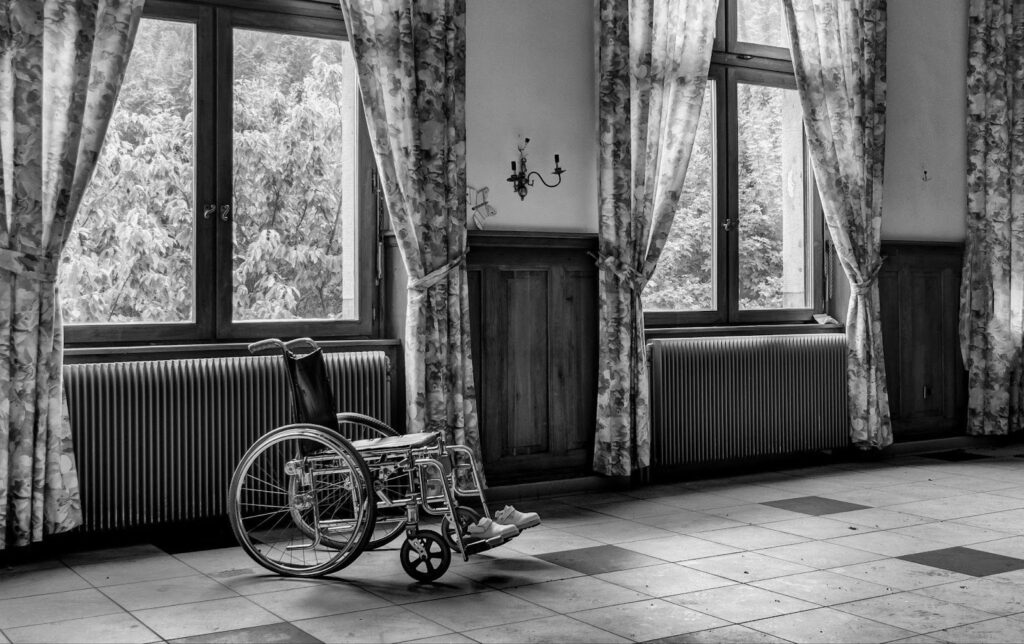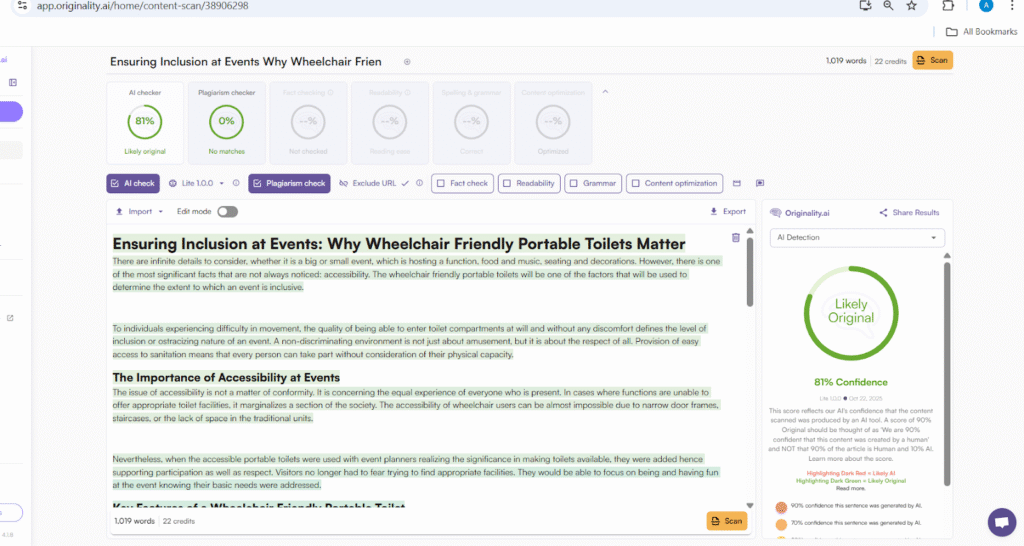
There are infinite details to consider, whether it is a big or small event, which is hosting a function, food and music, seating and decorations. However, there is one of the most significant facts that are not always noticed: accessibility.
The wheelchair friendly or handicap porta potty will be one of the factors that will be used to determine the extent to which an event is inclusive.
To individuals experiencing difficulty in movement, the quality of being able to enter toilet compartments at will and without any discomfort defines the level of inclusion or ostracising nature of an event. A non-discriminating environment is not just about amusement, but it is about the respect of all. Provision of easy access to sanitation means that every person can take part without consideration of their physical capacity.
The Importance of Accessibility at Events
The issue of accessibility is not a matter of conformity. It is concerning the equal experience of everyone who is present. In cases where functions are unable to offer appropriate toilet facilities, it marginalises a section of the society. The accessibility of wheelchair users can be almost impossible due to narrow door frames, staircases, or the lack of space in the traditional units.
Nevertheless, when the accessible handicap porta potty were used with event planners realising the significance in making toilets available, they were added hence supporting participation as well as respect. Visitors no longer had to fear trying to find appropriate facilities. They would be able to focus on being and having fun at the event knowing their basic needs were addressed.
Key Features of a Wheelchair Friendly Portable Toilet
The standard models do not have the many distinct design features that are available on a fully accessible unit. It possesses roll in ground level entry that does not require ramp or lifting. Its door is also wider than normal and can accommodate both normal and motorised wheelchairs. There is ample space to move about in there.
Handrails and grab bars that are in strategic locations are also important. These assist people to move safely or stabilise themselves. There are privacy lock, clear signs, and optional hand sanitising stations that make the place more convenient and comfortable. All these factors contribute towards autonomy and security, transforming an ordinary utility into a prestigious experience to users.
How Accessible Toilets Foster Inclusion
When accessible restrooms are available, guests with mobility limitations can attend and enjoy events with confidence. They do not have to depend on others or limit their time due to inadequate facilities. This independence promotes a sense of belonging and equality.
In addition, accessible toilets benefit more than wheelchair users. Parents with strollers, elderly guests, and people recovering from injuries often appreciate the additional space and stability these units offer. Inclusion, therefore, extends beyond physical ability to encompass a broader range of human needs.
Planning for Accessibility from the Start
Inclusion should be part of event planning from the earliest stages. When budgeting for portable toilets, organisers must account for accessible units as standard, not optional. The number required will depend on the size of the gathering, but every event should have at least one wheelchair accessible facility.
Placement is equally crucial. The units should be installed on level ground with clear, obstacle free pathways. They must be well lit and located close to main activity areas so guests using them do not feel isolated. Coordination with the portable toilet provider helps ensure safe placement and regular maintenance throughout the event.
Hygiene and Comfort for All Guests
Wheelchair friendly portable toilets are designed with hygiene and comfort in mind. Many feature touch free dispensers, easy to reach flush mechanisms, and ample ventilation. Hand sanitiser stations or portable sinks can be added to improve cleanliness.
A clean, accessible restroom contributes to the overall event experience. It shows that the organiser values every attendee equally and is committed to maintaining high standards of comfort and care.
Legal and Ethical Considerations
Accessibility laws in many regions require event facilities to include wheelchair friendly restrooms. However, compliance should not be the only motivation. Ethically, inclusion is about respect, fairness, and empathy. Providing accessible toilets is a way to uphold those values in a public setting.
For businesses and organisations, such inclusivity also reflects positively on their reputation. It demonstrates awareness and responsibility, qualities that resonate with attendees and communities alike.
Addressing Misconceptions About Accessibility
Some assume that accessible portable toilets are only necessary for a small segment of people. In reality, they benefit many. They also believe that including them significantly increases costs. While the rental fee for accessible units may be slightly higher, the social and ethical value they add far outweighs the expense.
Another misconception is that one unit is enough for every event. In large gatherings, multiple accessible units should be placed in different zones to reduce waiting time and provide convenience to everyone who needs them.
Communication and Awareness
Accessibility is most effective when people know about it. Event organisers can include details about accessible facilities in event announcements or maps. Visible signage at the venue helps direct attendees to these restrooms easily. When accessibility is communicated clearly, it reduces uncertainty and fosters inclusion from the moment guests arrive.
Creating a Culture of Inclusion
True inclusion begins with awareness and empathy. When organisers prioritise accessible toilets, they are sending a clear message: everyone is welcome. This small yet powerful step enhances participation, strengthens community spirit, and promotes social equality. It reflects a culture that values comfort, independence, and dignity for all.
Conclusion
Wheelchair friendly portable toilets are not just an addition to event logistics; they are a necessity for genuine inclusion. By incorporating features like wide doors, roll in access, spacious interiors, and supportive handrails, these units allow everyone to participate comfortably and safely.
As event planners and hosts, taking accessibility seriously ensures that no guest feels left out or inconvenienced. It transforms events into spaces where diversity is respected and celebrated. Inclusion, after all, starts with simple choices — and providing accessible sanitation is one of the most meaningful amongst them.

